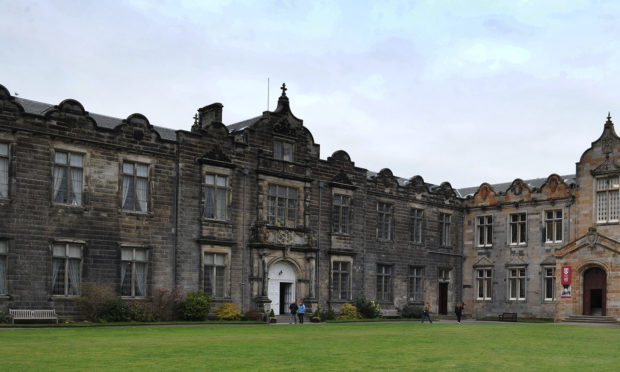St Andrews University is spearheading plans for Scotland’s £15.8 million artificial intelligence health research centre, which promises to innovate and transform healthcare.
The Industrial Centre for Artificial Intelligence Research in Digital Diagnostics, to be known as iCAIRD, brings together 15 partners from across academia, the NHS, and industry.
The project will be based at the University of Glasgow’s Queen Elizabeth University Hospital. Greg Clark, the UK secretary of state for business, energy and industrial stategy announced on Tuesday that UK Research and Innovation will invest £10 million in iCAIRD as part of the Industrial Strategy Challenge Fund.
Partner companies in the consortium, Canon Medical Research Europe Ltd and Philips, along with six SMEs, will provide more than £5 million of additional funding to support iCAIRD.
It is also predicted iCAIRD will create new jobs centred around AI and digital technology in healthcare.
Professor David Harrison, principal investigator for the project based in St Andrews but with visiting professorships in both Glasgow and Edinburgh, said: “I am delighted that iCAIRD has been awarded £10m from Innovate UK.
“With our pan-Scotland approach, we will build on existing strengths and deploy AI within NHS Scotland to transform diagnostics and healthcare in Scotland to improve outcomes for patients.
“This is a genuine collaboration between researches from Scottish universities, the NHS, and industry partners who are also contributing large sums to enable this project to be a success.
“Our aim is to transform digital diagnostic healthcare in Scotland, in order to benefit patients and make processes more streamlined and modern for the NHS.”
It is hoped the centre’s work will deliver significant benefits for patients through the development of solutions for more rapid treatment for stroke; expert chest x-ray reading; rapid and more accurate diagnosis in gynaecological disease and colon cancer; and partly automated mammogram analysis for breast cancer screening.
Jeane Freeman, Scottish cabinet secretary for health and sport, said: “Innovation and technology is an absolutely essential part of our efforts to get quicker and more accurate diagnosis, improved treatment and better outcomes for patients.
“This successful bid is the culmination of a huge amount of hard work from many in the NHS, including NHS Grampian and NHS Greater Glasgow and Clyde, and the Scottish Government’s own Chief Scientist Office.
“It will complement some of the other ongoing work in Scotland in the field of health technology and life sciences, and I look forward to seeing some of the results and the benefits they will bring to patients.”










